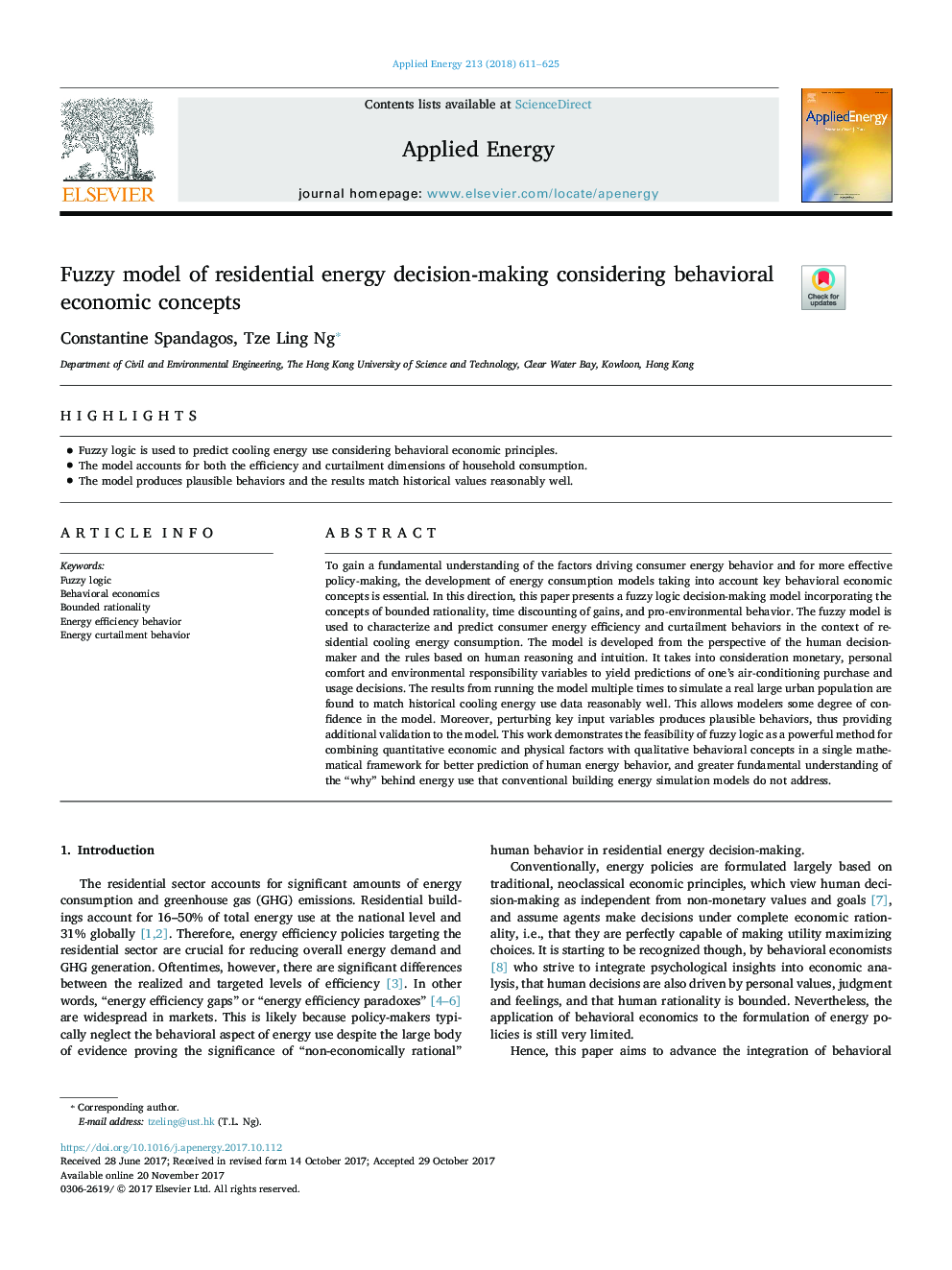| Article ID | Journal | Published Year | Pages | File Type |
|---|---|---|---|---|
| 6680853 | Applied Energy | 2018 | 15 Pages |
Abstract
To gain a fundamental understanding of the factors driving consumer energy behavior and for more effective policy-making, the development of energy consumption models taking into account key behavioral economic concepts is essential. In this direction, this paper presents a fuzzy logic decision-making model incorporating the concepts of bounded rationality, time discounting of gains, and pro-environmental behavior. The fuzzy model is used to characterize and predict consumer energy efficiency and curtailment behaviors in the context of residential cooling energy consumption. The model is developed from the perspective of the human decision-maker and the rules based on human reasoning and intuition. It takes into consideration monetary, personal comfort and environmental responsibility variables to yield predictions of one's air-conditioning purchase and usage decisions. The results from running the model multiple times to simulate a real large urban population are found to match historical cooling energy use data reasonably well. This allows modelers some degree of confidence in the model. Moreover, perturbing key input variables produces plausible behaviors, thus providing additional validation to the model. This work demonstrates the feasibility of fuzzy logic as a powerful method for combining quantitative economic and physical factors with qualitative behavioral concepts in a single mathematical framework for better prediction of human energy behavior, and greater fundamental understanding of the “why” behind energy use that conventional building energy simulation models do not address.
Related Topics
Physical Sciences and Engineering
Energy
Energy Engineering and Power Technology
Authors
Constantine Spandagos, Tze Ling Ng,
